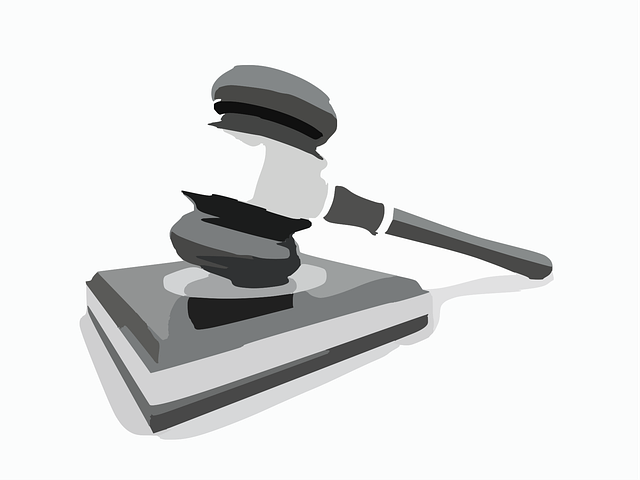Public corruption charges, with severe legal consequences, often arise from business partner disputes involving government contracts or decision-making. To prevent and resolve these conflicts, implement a robust general criminal defense strategy focusing on clear communication, contract terms, and performance evaluations. Early dispute resolution through mediation can save time and costs, while understanding evidence and proactively communicating with authorities strengthens defenses. Building international partnerships based on transparency, ethical conduct, and legal compliance fosters trust, fair dealing, and long-lasting relationships, leading to successful outcomes in navigating How to Resolve Business Partner Disputes.
Public corruption charges pose significant legal and reputational risks. This article delves into the intricate world of public corruption, exploring its definition, legal implications, and underlying causes, particularly in business partnerships. We analyze common disputes leading to corruption allegations and offer strategic solutions for resolution. Additionally, we emphasize the pivotal roles of transparency, ethics, and legal compliance in fostering trustworthy partnerships, providing guidance on How to Resolve Business Partner Disputes effectively.
- Understanding Public Corruption Charges: Definition and Legal Implications
- Common Causes of Business Partner Disputes Leading to Corruption Allegations
- Strategies for Resolving Disputes and Avoiding Criminal Charges
- The Role of Transparency, Ethics, and Legal Compliance in Building Trustworthy Partnerships
Understanding Public Corruption Charges: Definition and Legal Implications
Public Corruption Charges refer to illegal acts performed by public officials or those in positions of power who abuse their authority for personal gain. This can include bribery, extortion, fraud, and other forms of misconduct involving government contracts, permits, or any official decision-making process. Understanding these charges is crucial when navigating How to Resolve Business Partner Disputes, especially for corporate and individual clients alike.
The legal implications are significant, with potential consequences including jail time, heavy fines, and damage to the reputation of both the individual and their respective business. Jury trials play a vital role in such cases, providing an impartial assessment of evidence and testimony. Whether involving public servants or private individuals, addressing public corruption requires a meticulous understanding of the law and its application to ensure justice for all parties involved.
Common Causes of Business Partner Disputes Leading to Corruption Allegations
Business partner disputes can often lead to corruption allegations if not handled properly. Common causes include misunderstandings over contracts, unequal power dynamics, and misaligned financial interests. When one partner feels they are being taken advantage of or not fairly compensated, it can create a toxic environment ripe for unethical behavior. For instance, a disgruntled partner might manipulate financial records to support their case in a dispute, leading to potential criminal charges if evidence surfaces.
Resolving these disputes is crucial for maintaining the integrity of businesses and relationships across the country. A robust general criminal defense strategy should involve open communication channels, clear contract terms, and regular performance evaluations. By addressing issues early and ensuring each partner’s respective rights are respected, many potential problems can be averted. This proactive approach not only minimizes the risk of corruption allegations but also fosters a more collaborative and successful business partnership.
Strategies for Resolving Disputes and Avoiding Criminal Charges
When facing public corruption charges, navigating through complex legal landscapes can be daunting. One effective strategy to avoid criminal charges is early intervention and dispute resolution. For clients accused of misconduct, exploring alternative avenues before formal indictment can significantly impact the outcome. Mediation, for instance, offers a collaborative approach where parties involved can negotiate a mutually acceptable solution without the need for a trial. This method not only saves time and legal costs but also fosters a sense of cooperation, which is crucial in maintaining business relationships.
Additionally, understanding the evidence against you is paramount. Legal teams should scrutinize the facts to identify potential weaknesses or discrepancies. By presenting a robust defense strategy, including challenging the admissibility of evidence and questioning witness testimonies, individuals can avoid jury trials and secure more favorable outcomes. Proactive communication with prosecutors and judges, along with a solid legal defense, can lead to reduced charges or even dismissal, ensuring that businesses and their partners protect their reputations and stay ahead in the face of corruption allegations.
The Role of Transparency, Ethics, and Legal Compliance in Building Trustworthy Partnerships
Building trustworthy partnerships in any business venture is paramount to success, especially when navigating complex international transactions. Transparency acts as a cornerstone in fostering strong alliances by ensuring open communication and disclosure of information between partners. When businesses operate with complete transparency, it sets a robust foundation for ethical conduct and mutual respect. Ethics play a vital role in maintaining these partnerships, encouraging fair dealing, and upholding the highest moral standards.
Moreover, adhering to legal compliance is crucial for resolving potential disputes that may arise. Understanding and respecting each other’s respective business environments, laws, and regulations can help avoid conflicts. For both corporate and individual clients, ensuring transparency, ethics, and legal compliance not only builds trust but also provides a solid framework for winning challenging defense verdicts when issues do occur, ultimately leading to long-lasting and mutually beneficial partnerships.
Public corruption charges can have severe legal and reputational consequences for individuals and businesses. Understanding the root causes of disputes leading to corruption allegations, such as lack of transparency and ethical guidelines, is crucial. By implementing robust strategies for resolving business partner disputes and prioritizing transparency, ethics, and legal compliance, organizations can build trustworthy partnerships and minimize the risk of criminal charges. Adopting proactive measures to address potential conflicts and fostering a culture of integrity is essential in navigating these complex issues effectively.






